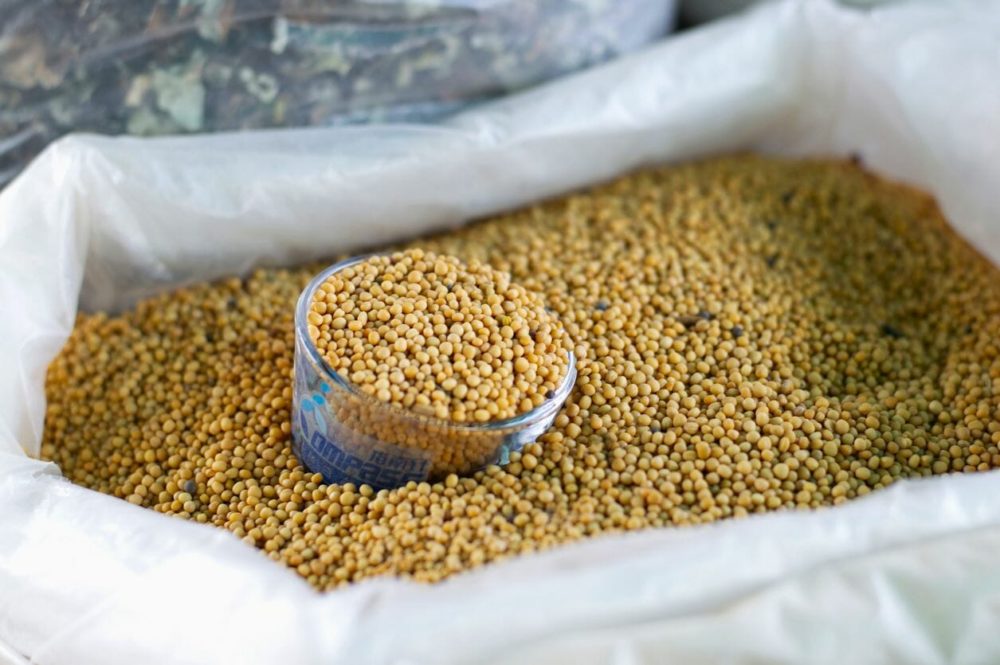One of the worst times for an Indian smallholder farmer to come to market with their grains or seeds is exactly when you might expect them to do just that — right after harvest. At this point, even during relatively bad seasons, the market is well and truly glutted; commodity prices slump to their lowest points and farmers are left with the smallest possible payoff for their labour. Next harvest, same story.
So, it pays to wait. Within months, supplies tighten; prices tend to rise. But smallholder farmers in rural or peri-urban India often lack reliable access to two vital things allowing them to sit it out: high-quality local storage options, and spare capital.
Blessings come in bundles
The Indian post-harvest services company Arya has raised its $6 million pre-Series B funding in an ambitious bid to fill this double shortfall, leasing out and upgrading clusters of agri-warehouses close to farmers, while simultaneously offering lending options to keep farmers on top of their bills for as long as their goods are lodged in storage.
Effectively, Arya is bundling the post-harvest agricultural value chain, bringing combined access to warehousing, warehouse receipt financing, rural storage discovery, collateral management and various market linkages.
“These products have to go hand in hand to provide scale,” said Kushal Agrawal, partner and CFO of LGT Lightstone Aspada, an India-focused impact investment platform. LGT Lightstone Aspada is backed by LGT Group after the private banking and asset management group, owned by the Princely House of Liechtenstein, acquired impact fund management group Aspada and the majority of its portfolio last year from the billionaire George Soros’s philanthropic agency.
Agrawal’s firm, then under the banner of Aspada and backed by the Soros Economic Development Fund, first invested in Arya back in 2016 — kudos, by the way, to whoever decided to trim the company’s name down from “Arya Collateral Warehousing Services Private Limited.”
For the pre-Series B, Agrawal’s team followed on its investment in a round led by Omnivore, an Indian agri-foodtech venture capital firm that closed its second fund on $97 million in April last year and has been blasting out investment after investment ever since.
“Every loan has collateral that is being warehoused,” said Omnivore’s managing partner, Mark Kahn, describing Arya’s financial loan offerings as secure and even somewhat conservative. “I would never describe it as a risky fintech bet,” he told AFN by phone, highlighting what he saw as the team’s impressive sectoral experience in allocating finance schemes to farmers as a major reason he invested.
Warehouse wherewithal
That experience, Kahn noted, has deep corporate roots. Until 2013, Arya was part of the JM Baxi Group. Then, Prasanna Rao and Anand Chandra — who had both previously served in senior roles at ICICI Bank’s agri commodity finance department — acquired a controlling stake in the company. The founding pair have since been joined by another ex-ICICI executive: Chattanathan D, the former group product head of its rural and inclusive banking wing.
Offsetting downside risks of bad harvests leading to empty warehouses, the team has diversified its clusters of warehouses by crop variety and geographic region. The Delhi-based company currently manages over 2.5 million MT of agri commodities in its 1400 warehouses, with around 75% of its warehousing capacity located in primary and secondary — village and small mandi level — markets. Arya is also launching a rural storage discovery platform aimed at building a pan-India agri warehousing marketplace.
It has an impressive list of clients on its website including major commodities trading houses Cargill, ADM, Glencore, and Louis Dreyfuss.
An agri-warehousing digital marketplace
In a note sent to AFN, the management at Arya says it plans to use the pre-Series B funding “to accelerate the growth of its agri storage network, build its book in warehouse receipt financing, and lay the foundations of a pan-India agri warehousing marketplace.” The company plans to open its Series B fundraising round by mid-2020.
Know of any equivalent agri-warehouse investments? Let us know. Drop me a note at [email protected]





